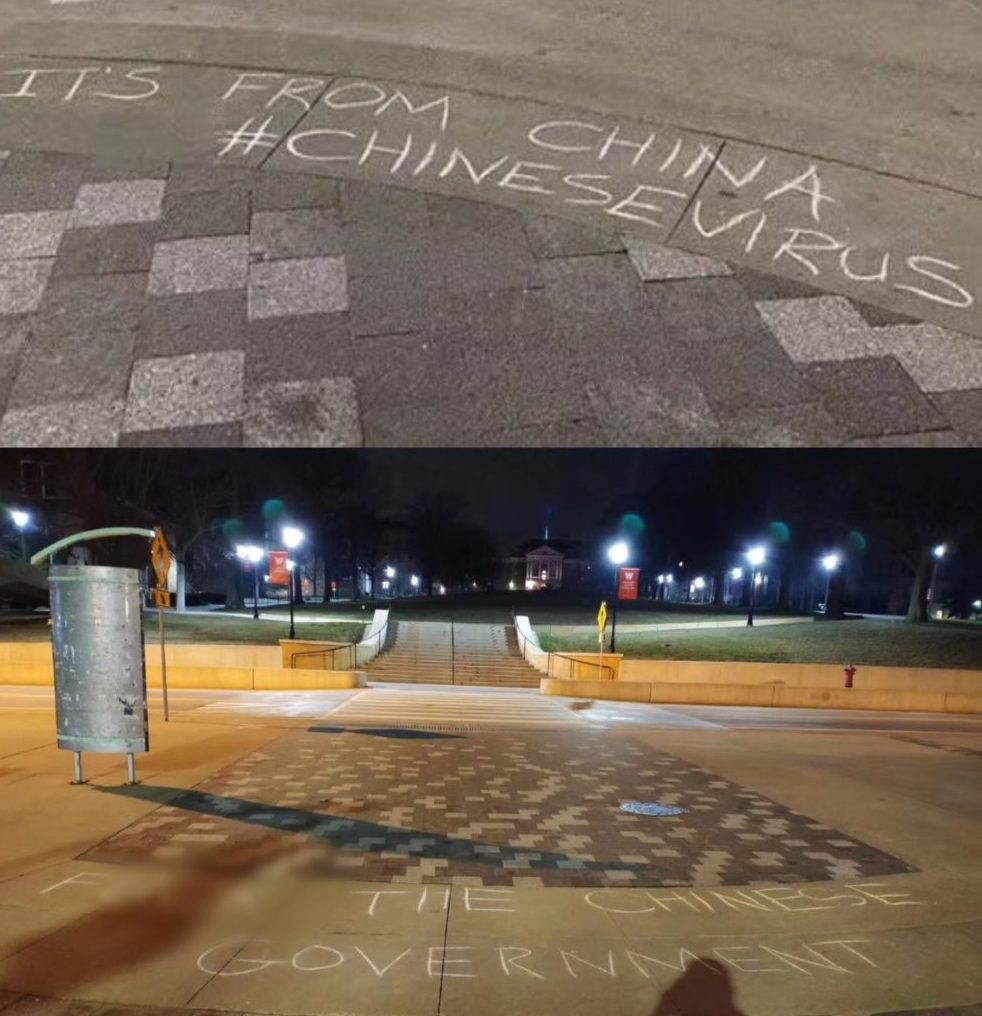
One day earlier this month, when coronavirus was still being talked about as problem in China, a young man of Korean descent was waiting in line at a sandwich shop in Madison. Ahead of him, two other customers were talking about the growing epidemic.
“And while we we’re all waiting, out loud they’re talking about like, ‘you know those Chinese people. Can’t trust them,’” said the man, who asked not to be identified by name. “And then they kind of looked at me, and they both packed up to go away from me. So I was like, okay, that’s weird. But I just thought these things happen sometimes. And I’m used to dealing with stuff like this. So I just let it go.”
That incident was easy to let go. The next one, not so much.
A few weeks later, the virus had already begun spreading around the United States. Wisconsin Governor Tony Evers’ “Safer at Home” order went into effect on a Wednesday, and that evening, this young man took a walk to the corner store. As a precaution, he wore a face mask.
On his way home, a white man in his 40s called across the street asking if he had a light. He said he didn’t, and another man offered one instead.
“And then this person that asked for the lighter, he says, ‘You know what, you’re my brother, man. Not like that mask-wearing g*** over there,’” he recalled.
The man, who grew up in a military family living in many places, has lived in Madison for seven years. That’s the first time he’s heard that word in that time.
“I’ve been called that numerous times throughout my life. I’ve been called that a ton when I was in school. It’s just the first time I’ve been called it here,” he said. “I think I got kind of comfortable with not hearing it publicly. And … when I heard it I just got really scared because I don’t know what this guy’s capable of, if he’s just willing to just outright say it.”
Asian American advocacy groups have warned that Asian Americans might soon be subject to discrimination and even hate crimes because of the coronavirus. The first cases were reported in China and many leaders, including President Donald Trump, insisted on referring to it as the “Chinese virus” for the first weeks of the pandemic.
The Madison man said he worries it’ll only get worse as the virus affects more people.
“If this is already happening to me or to Asian people here, currently, I am really afraid of a month from now,” he said. “It’s a really bad combination because I think most people see Asian people as docile (or) submissive. So they get even more emboldened, I feel like, to be okay saying these things. So it’s a really bad combination for me and it’s just really scary because we have that combination in play right now.”
The University of Wisconsin reports an increase in bias incidents involving Asian American and international students as well. In the spring semester — when students were on campus for only seven weeks — the university’s hate and bias incident reporting system received 81 reports, UW News and Media Relations Director Meredith McGlone said. Many of those were duplicate reports of the same incident — anti-Chinese graffiti appeared on campus early last week. Forty-seven of those reports involved Asian American or international students from Asia.
By comparison, there were only 46 total reports in the spring of 2019.
After the anti-Chinese graffiti was discovered and shared widely on social media, UW Chief Diversity Officer Patrick Sims tweeted his support for Asian and Asian American students.
“Let me be clear— racism and xenophobia have no place in the #UWMadison community. COVID-19 is not specific to an ethnicity or race. Disease does not discriminate,” he wrote.
UW hosted a virtual town hall meeting for students on Thursday and faculty and staff on Friday, which was “a tremendous success,” said Mary Carr Lee, communications director for the UW Division of Diversity, Equity & Educational Achievement.
Madison police said they have not received reports of racial violence or discrimination against Asian Americans.
But that doesn’t mean they’re not happening — the man who was called the g-word didn’t call police, for example.
“That guy can just say he didn’t say it. It’s not like I have proof,” he said.
Still, while the virus might be keeping him from getting out too much, he’s not going to let fear of racism do the same.
“I don’t want to have people like that stop me from going to the corner store,” he said. “Because I feel like then they win. So it’s on my mind but I’m not going to stop going out. Or doing things, living my life.”



